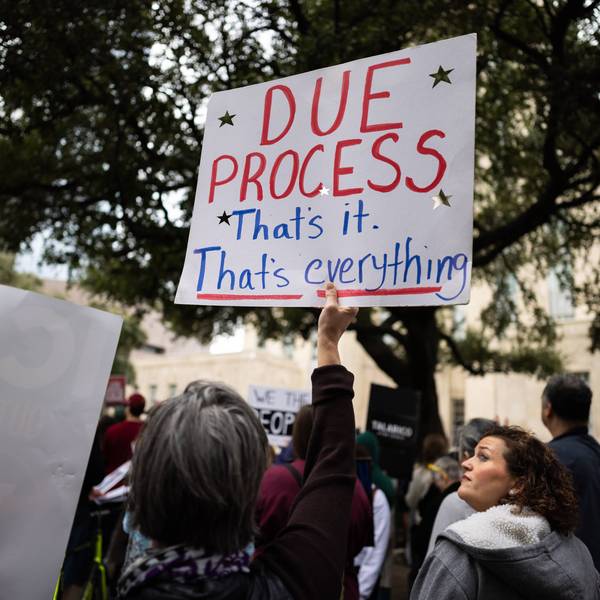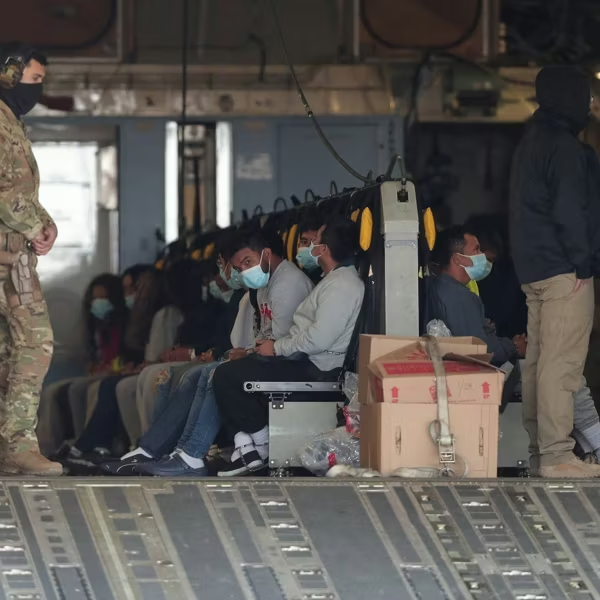The United States and Philippine governments are collaborating on the mass violation of human rights and self-determination in the southeast Asian country--inflicting torture, disappearances, and extrajudicial killings through the so-called War on Terror--witnesses and survivors testified Thursday during the Washington, D.C. kickoff of a grassroots International People's Tribunal.
Organized by numerous groups, including a global network called the International Coalition for Human Rights in the Philippines, the historic tribunal has assembled a jury of lawyers, scholars, ministers, and rights campaigners--and enlisted prominent attorney, activist, and former government official Ramsey Clark as their lead prosecutor.
Those gathered for the emotionally-charged testimony demanded that the administrations of Philippine President Benigno Aquino III and U.S. President Barack Obama answer for their atrocities.
Coy Gemarino testified to a crowded auditorium at the Catholic University of America Thursday that her husband was extra-judicially killed in 2014, "brutally shot in front of my mother who is 91 years old."
The killing of Gemarino's husband and other civilians was "the result of the Philippine's counter-insurgency plan 'Oplan Bayanihan,' which is patterned after the counter-insurgency guide of the U.S. government and is funded by U.S. military aid," said Bernadette Ellorin, chairperson of BAYAN-USA, an alliance of Filipino organizations in the U.S, in an interview with Common Dreams.
Filipina-American Melissa Roxas testified that she was abducted and tortured by the Philippine government during a 2009 medical mission: "Anytime that you work with the poor community, they automatically label you as the New People's Army and they try to vilify your work and justify the abduction and torture." The NPA is the military wing of the Communist Party of the Philippines.
At times, the sound of sobbing could be heard in the room, prompting hosts to pass around boxes of tissues. But witnesses ultimately struck a tone of defiance, urging the jury to hold both governments accountable for their crimes.
Philippine social movements have long opposed U.S. power over their country, manifested in more than 50 years of direct colonial rule, the backing of the ruthless dictator Ferdinand Marcos, and a heavy military presence. In 1992, those movements finally forced the Philippine government to evict the U.S. military from the country and shut down the last permanent base.
However, the U.S. military has returned, with the administration of George W. Bush in 2001 declaring the Philippines to be the "second front" of the War on Terror.
And Obama has aggressively pushed to expand U.S. military presence as part of a "pivot" to the Asia-Pacific to hedge against China. Last year, the U.S. and Philippine governments signed a 10-year pact--the Enhanced Defense Cooperation Agreement--opening the country to troops, warships, and fighter planes.
The results, many charge, have been devastating. U.S. military service members perpetrate sexual assault and violence against civilian populations, including in the infamous Subic Bay rape case in 2005. The 2014 alleged murder of transgender woman Jennifer Laude by a U.S. Marine stoked widespread anger at the U.S. military presence.
Earlier this year a botched U.S.-backed commando raid in the Mamasapano municipality in the southern Philippines led to dozens of deaths, sparking widespread outcry.
Furthermore, the U.S. military brings environmental destruction, including severe harm to the Tubbataha Reef in the Sulu Sea.
The International Tribunal declared in a purpose statement that the U.S. military presence in the Philippines, enabled by the administration of Aquino III, breaches the most fundamental principles of Philippine sovereignty:
Violations of the rights of the people to national self-determination and liberation through the imposition of the U.S. war of terror; U.S. military intervention; as well as the perpetration of crimes against humanity and war crimes; misrepresentations of the people's right to national liberation and self-determination as 'terrorism' and the baseless 'terrorist' listing of individuals, organizations and other entities by the U.S. and other governments.
Throughout the course of the trial--whose verdict will be announced Saturday--numerous witnesses will testify, including a member of the Philippine Congress.
Katrina Abarcar of the International Coalition for Human Rights in the Philippines declared in a statement: "It's time for U.S. taxpayers to understand the role of their government in the human rights crisis in the Philippines, including the impact of U.S. militarism on the Filipino people and their environment."



